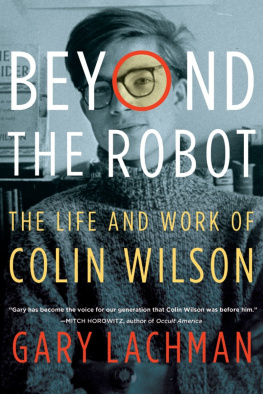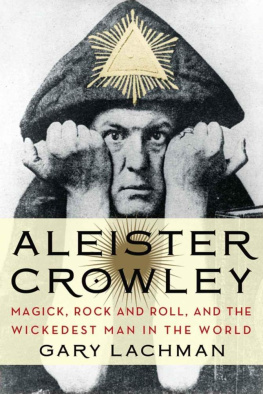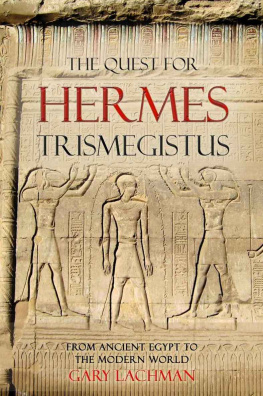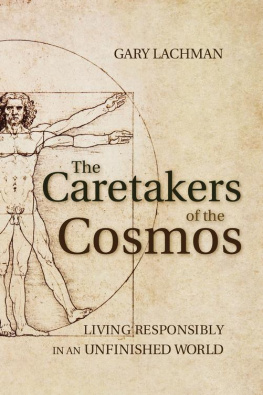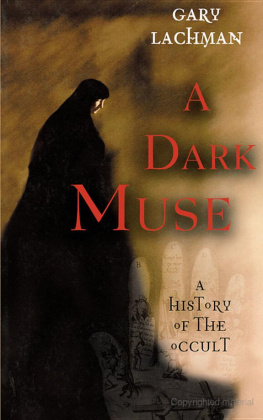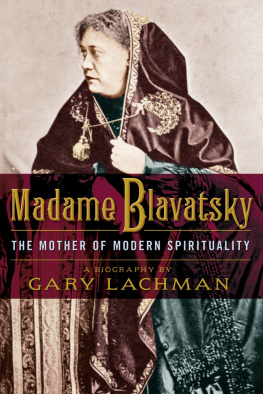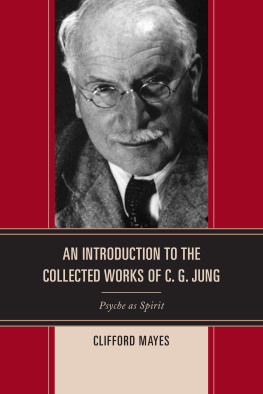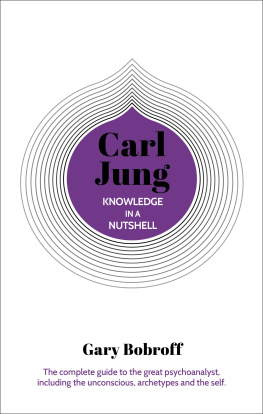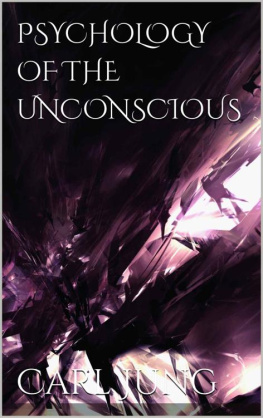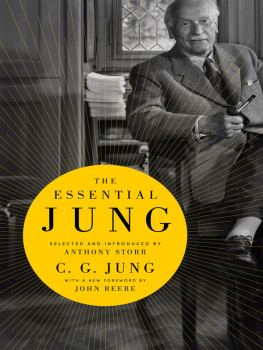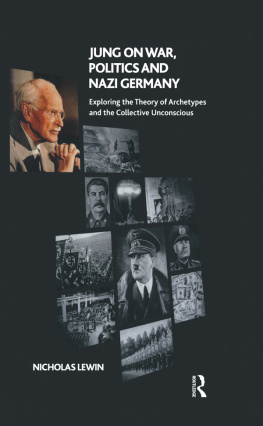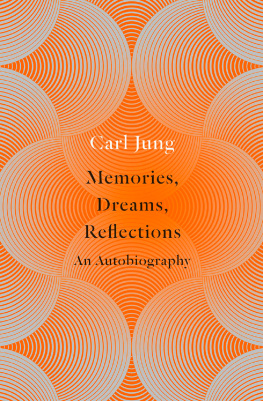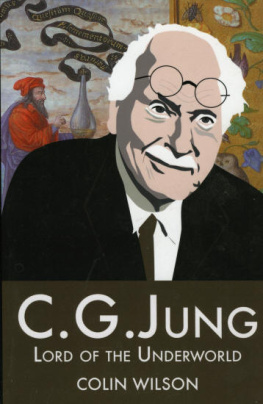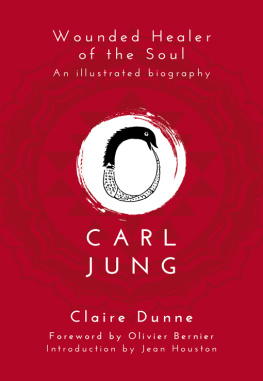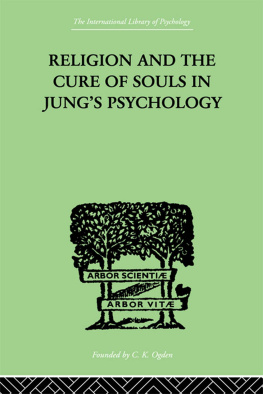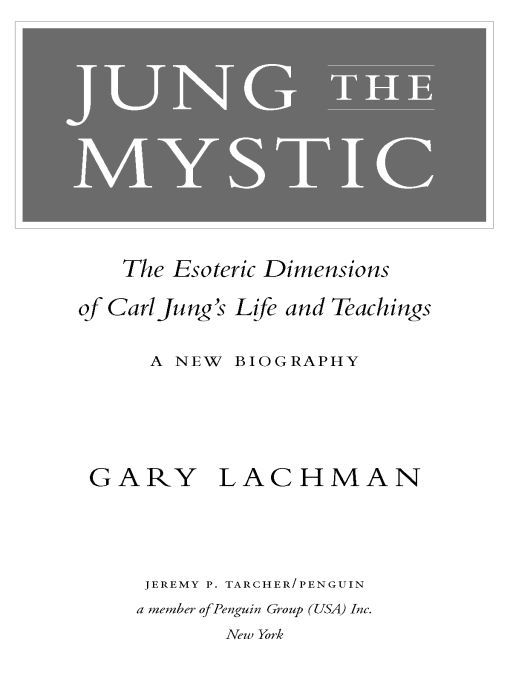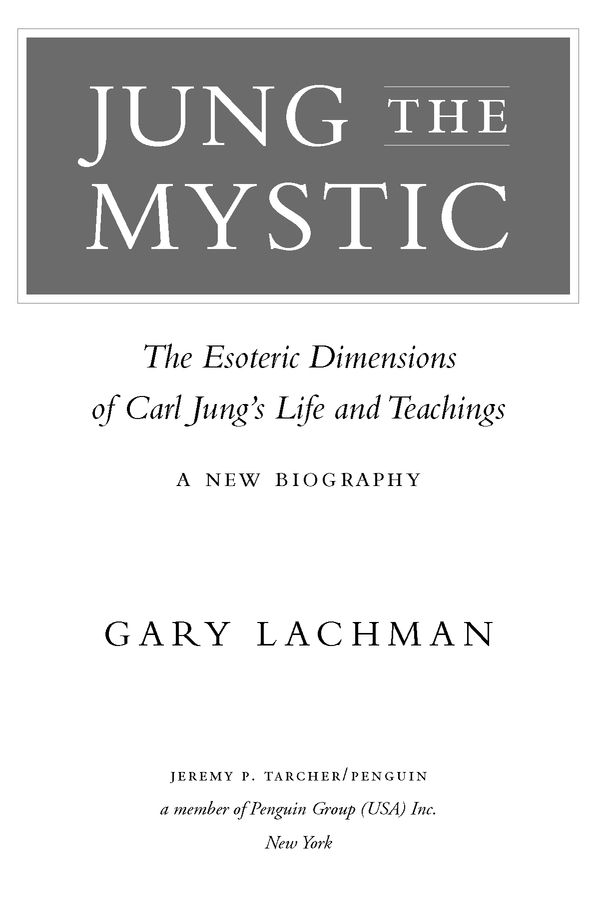Table of Contents
ALSO BY GARY LACHMAN
Rudolf Steiner: An Introduction to His Life and Work
Into the Interior: Discovering Swedenborg
The Dedalus Occult Reader: The Garden of Hermetic Dreams
A Dark Muse: A History of the Occult
In Search of P. D. Ouspensky: The Genius in the Shadow of Gurdjieff
A Secret History of Consciousness
Turn Off Your Mind: The Mystic Sixties and the
Dark Side of the Age of Aquarius
The Dedalus Book of Literary Suicides: Dead Letters
Politics and the Occult: The Left, the Right, and the Radically Unseen
WRITTEN AS GARY VALENTINE
New York Rocker: My Life in the Blank Generation
with Blondie, Iggy Pop, and Others, 1974-1981
If you bring forth what is within you, what you bring forth will save you. If you do not bring forth what is within you, what you do not bring forth will destroy you.
THE GOSPEL OF THOMAS
For
Marie-Louise von Franz (1915-1998)
Anthony Storr (1920-2001)
Stephan Hoeller
Helpful guides on the night sea journey
INTRODUCTION:
THE UNDISCOVERED JUNG
Was Jung a mystic? Jung didnt think so and he thought little of those who did. In a filmed interview in 1957 with Richard I. Evans, professor of psychology at the University of Houston, Jung, then in his eighties, remarked that Everyone who says that I am a mystic is just an idiot. that precipitated Jungs break with the founder of psychoanalysis in 1912 and saddled him with a label he spent a lifetime trying to shed. By the time of Evans interview, Jung had been at it for nearly fifty years, and as the title of this book suggests, he had had little luck. Till the end of his life and throughout a long and often turbulent career, an exasperated Jung argued that he was first and foremost a scientist and empiricist, and not a theorist, metaphysician, philosopher, or, most emphatically, a mystic. His complaints, however, fell mostly on deaf ears, and the onus of mysticism hovers around Jung even today, as I discovered during a visit to the Freud Museum, here in London, while researching this book. Talking with the curator about Freuds embrace of nineteenth-century scientific materialism and its tendency to reduce spiritual phenomena to material causes, I casually mentioned that Jungs more constructive approach to the unconscious seemed to reject this. Yes, the curator said, this is true, but that is mysticism, not science. Jung, I suspect, must have turned over in his grave.
Yet Jung himself was not always the best advocate for his defense. In a series of lectures given at Londons Tavistock Clinic in 1935which form one of the best introductions to his ideasJung pointed out that There is nothing mystical about the collective unconscious,archetypes being the psychic blueprints, as it were, of the individual images that together comprise the collective unconscious. So while there is nothing mystical about the collective unconscious, there certainly seems something archetypal about mystical experience, at least according to Jung. And as Jung himself had a particularly vivid experience of the processes of the collective unconscious, he would, by his own definition, be a mystic.
This ambiguity is common to Jung and is one reason why most members of the scientific community are unwilling to grant him acceptance. According to the psychiatrist Edward Glover, from the point of view of scientific exposition, Jung is at the best of times a confused writer apparently unable to call a spade a spade and to keep on calling it a spade, the effect of this being to create an immense lather of verbosity. The collective unconscious itself is a case in point. At various times Jung spoke of it in biological and genetic language; in terms of brain structure; metaphysically, as similar to Platos Ideas; anddare I say it?mystically, as something along the lines of what the initiates into the ancient Eleusinian mysteries experienced. Jungs followers argue that his style is suited to his unwieldy materialdreams, visions, and those strange meaningful coincidences he called synchronicitiesrather as devotees of the philosopher Martin Heidegger argue that his gnomic and often impenetrable writings parallel the uncommon territories of Being he explores. Yet others, less convinced of Jungs importance, say they are simply vague and that Jung himself was a muddled thinker. Jung was clearly one of the most influential minds of the last century, but he was also, unfortunately, one of the most frustrating.
But prolixity alone cant be all that bars Jung from the hallowed halls of science or drapes him in the unwanted robes of mysticism. Throughout his career, Jung made no secret of being fascinated with areas of experience any scientist worth his salt would turn his nose up at. From the beginning, Jung was enthralled by the supernatural and what we have come to call the paranormal, and although he began his career at a time when some of the most important thinkers in the world thought these worthy of serious pursuit, for the most part science in his day (as in ours) had relegated the idea of any immaterial or spiritual reality to the intellectual dustbin. Yet even here, Jungs ambiguity causes concern. Jung seemed to have two minds about the supernatural: a public one that wanted to understand it scientifically, and a private one that acknowledged ghosts, visions, and premonitions as part of the essential mystery of life.
Exactly why Jung shrouded the origins of his discoveries in a mantle of caution that bordered on Hermetic concealment, Its possible Jung overcompensated for criticisms of his lack of scientific rigor by producing weighty, erudite tomes. But its equally possible that Jung aimed at bludgeoning his readers into acceptance by the sheer volume of his work, what Ive come to call the Herr Doctor Professor effect. Reading a great deal of Jung, as I did in preparation for this book, its difficult to avoid feeling that he is compelled to remind his readers repeatedly that he is indeedand make no mistake about ita scientist. One cant help suspect at times that he was not as certain about this as he claimed and that one of the people he was trying to convince was himself.
Yet unfounded scientific pretensions and a verbose, torrential style still seem not quite sufficient to warrant the charge of mystic, if charge it is. What seems to pin Jung to the mystical bulls-eye is his claim to special, secret knowledge, knowledge not obtained through the normal methods of cognition, what some Christian sects of the first centuries after Christ called gnosis, direct spiritual experience. Jung often lamented that he knew things and must hint at things which other people do not know, and usually do not even want to know. and for someone accused of mysticism, this is an awfully pragmatic credo. In a very significant sense then, the whole idea of whether or not Jungs work was science is irrelevant to what is important about it.
But it is this need to experience the reality of individuation that led Anthony Storr to include Jung in his book Feet of Clay: A Study of Gurus. Jung was a guru, Storr argued, because he abandoned the scientific tradition and knew he was right. Jung came to his knowledge through his own experience of individuation, that difficult and sometimes dangerous process of unifying the conscious and unconscious minds. No one who has undergone the process of assimilating the unconscious, Jung wrote, will deny that it gripped his very vitals and changed him.


